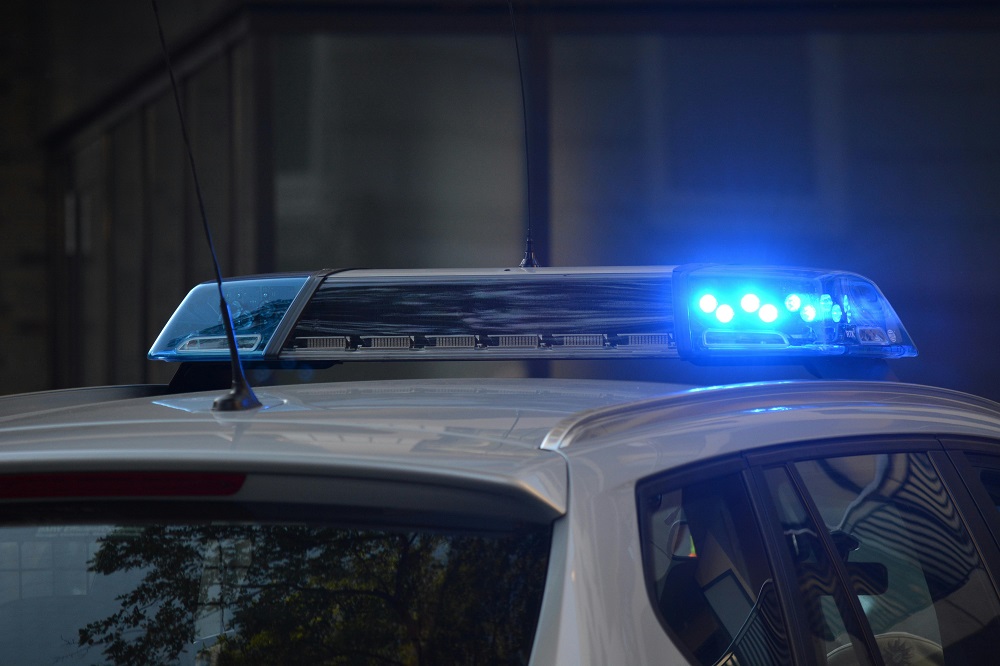What Are Impaired Driving Checkpoints in Calgary?
In Calgary, impaired driving checkpoints—commonly referred to as “Check Stops”—are a regular part of the city’s law enforcement strategy to keep roads safe. These roadside stops are organized by the Calgary Police Service (CPS) and are designed to identify and remove impaired drivers from the road. Officers stationed at these checkpoints have the authority to stop vehicles at random, ask questions, and request sobriety testing if impairment is suspected.
Check Stops are especially common during high-risk times of the year when alcohol and drug consumption tends to increase. For example, holiday seasons such as Christmas, New Year’s Eve, and Calgary Stampede often see more frequent and highly publicized checkpoints.
The legal authority for impaired driving checkpoints comes from both the Criminal Code of CanadaandAlberta’s Traffic Safety Act. Under these laws, police officers are permitted to stop drivers without prior suspicion of impairment. At a minimum, you can expect to be asked for your driver’s licence, registration, and proof of insurance. If officers observe signs of impairment—such as slurred speech, the smell of alcohol or cannabis, or erratic behaviour—they may request further testing, including roadside breath tests or oral fluid tests for drug impairment.

When Can Calgary Police Stop You?
Since the federal government introduced mandatory alcohol screening in 2018, officers can now demand a breath sample from any driver who has been lawfully stopped—even if there are no outward signs of impairment. This means that if you are pulled over at a Calgary Check Stop, police can require you to blow into a roadside screening device without needing prior suspicion that you have consumed alcohol.
It’s important to distinguish between routine traffic stops and official impaired drivingcheckpoints. A routine stop may occur if an officer observes a traffic violation such as speeding, running a red light, or failing to signal. During these stops, police may also assess whether the driver is impaired. In contrast, Check Stops are planned operations set up in specific areas of Calgary to target impaired driving.
Regardless of whether you are stopped during a traffic violation or at an official checkpoint, drivers in Calgary are legally required to comply. Even if you have not consumed alcohol or drugs, refusing to provide a breath sample when asked is itself a criminal offence under the Criminal Code of Canada.
Your Rights at an Impaired Driving Checkpoint in Calgary
Even though the Calgary Police Service (CPS) has wide powers to stop drivers at roadside checkpoints, you still have important rights protected under the Canadian Charter of Rights and Freedoms.
First, you have the right to be informed of the reason for the stop. Officers must clearly explain why they are stopping your vehicle and what they are requesting from you. At an official Check Stop, the purpose is usually to check for impaired driving, valid documentation, and overall road safety compliance.
Second, you have the right to legal counsel under section 10(b) of the Charter. If you are detained or arrested—for example, after failing a roadside screening test—you must be informed of your right to speak with a lawyer. Police must also provide you with a reasonable opportunity to contact legal counsel without delay.
However, there are limitations. At the roadside, police can make immediate demands for a breath test or oral fluid drug test before you have the chance to speak to a lawyer. In other words, your right to consult a lawyer is temporarily suspended until after the roadside test is complete.
If you are then taken to a police station or a mobile testing unit for further testing, your rights expand. At that stage, you must be given the opportunity to speak with a lawyer before providing additional samples, such as an evidentiary breath test. The distinction is important: while roadside screening allows for immediate demands, once you are formally detained for investigation, the Charter requires that your rights be fully respected.
For Calgarians, this means you should always comply with roadside demands, but also assert your right to legal counsel if the stop escalates into detention or arrest.
What Calgary Police Can and Cannot Do at Checkpoints
When you encounter an impaired driving checkpoint in Calgary, it’s important to know exactly what the Calgary Police Service (CPS) is legally allowed to do—and where the limits of their authority lie.
Lawful Powers
At a checkpoint, police have the legal right to:
- Demand a roadside breath test if you are lawfully stopped, even without signs of impairment.
- Request your driver’s licence, vehicle registration, and proof of insurance. You must provide these documents when asked, or risk fines and further penalties.
- Make observations about your condition, such as slurred speech, red eyes, or the smell of alcohol or cannabis, which may lead to further testing or detention.
Unlawful Actions
While their powers are broad, there are limits. Police at checkpoints cannot automatically search your vehicle without reasonable grounds. For example, if there is no visible evidence of illegal substances or weapons, and no safety concerns, a search of your car would likely be unlawful. Similarly, officers cannot pressure you into answering unrelated personal questions—you are only required to provide identification and comply with lawful testing requests.
Use of Drug Recognition Experts (DREs) in Calgary
When alcohol isn’t the suspected issue, Calgary Police may rely on Drug Recognition Experts (DREs). If impairment is suspected, you may be required to provide a blood or urine sample for confirmation. DREs are frequently used in Calgary as cannabis and prescription drug-related impairment cases rise.
Consequences of Refusing a Roadside Test in Calgary
In Calgary, refusing to provide a roadside breath or drug test when lawfully demanded is treated as seriously as an actual impaired drivingoffence.
Immediate Licence Suspensions
Under Alberta’s Administrative Licence Suspension (ALS) Program, refusal to take a roadside test leads to an immediate licence suspension. Typically, this includes:
- A 90-day suspension where you are prohibited from driving entirely.
- Followed by a one-year period where you may only drive with an ignition interlock device installed in your vehicle.
This suspension is automatic and takes effect at the roadside, even before any court hearing.
Vehicle Seizure and Towing
In addition to losing your licence, your vehicle will be seized and towed at your expense. The standard seizure period is usually 30 days, meaning you will be responsible for storage and towing costs, which can add up quickly in Calgary.
Criminal Charges for Refusal
Refusing a test is itself a criminal offence under the Criminal Code of Canada. The consequences are the same as being convicted of impaired driving, which may include:
- A minimum fine of $2,000.
- A criminal record, which can affect employment, travel, and immigration status.
- The possibility of jail time, especially for repeat offenders.
- Mandatory education and treatment programs under Alberta’s impaired driving laws.
For Calgarians, the message is clear: refusing a test does not protect you—it puts you in the same legal position as failing one. The combination of immediate administrative penalties and potential criminal consequences makes refusal a very risky choice.
Penalties for Impaired Driving Charges in Calgary
Being charged with impaired driving in Calgary carries serious and long-lasting consequences under both federal and provincial law. Alberta has some of the strictest administrative penalties in Canada, and these apply in addition to the criminal consequences under the Criminal Code of Canada.
Fines, Licence Suspensions, and Ignition Interlock
For a first-time conviction, drivers can expect a mandatory minimum fine of $1,000, along with an automatic one-year licence suspension. After the initial 90-day absolute suspension, many drivers are only permitted to drive if they install an ignition interlock device in their vehicle at their own expense.
Jail Time for Repeat Offences
The penalties increase significantly for repeat offenders. A second conviction carries a minimum 30-day jail sentence, while a third conviction results in at least 120 days in jail. Judges in Calgary courts often impose harsher penalties when aggravating factors are present, such as high blood-alcohol levels, impaired driving with children in the vehicle, or causing an accident.
Impact on Insurance and Travel
An impaired driving conviction also leads to dramatically higher auto insurance premiums in Alberta, with many Calgary drivers finding themselves in high-risk categories for years after the offence. Beyond insurance, a conviction can create international travel restrictions. For example, entering the United States can be extremely difficult with an impaired driving record, as U.S. border officials may treat it as grounds for inadmissibility.
How Calgary Criminal Lawyers Defend Checkpoint Cases

Challenging the Legality of the Stop or Detention
One common defence is to question whether the initial stop or detention was lawful. While Calgary Police have broad authority at checkpoints, mistakes in procedure—such as failing to clearly state the reason for detention—can open the door for a legal challenge. If a judge finds the stop unlawful, any evidence gathered during that stop may be excluded.
Arguing Violations of Charter Rights
Defence lawyers also look for breaches of the Canadian Charter of Rights and Freedoms. For example, if there was an unreasonable delay in granting access to legal counsel after detention, section 10(b) rights may have been violated.
Disputing the Reliability of Roadside Screening Devices
Another key area of defence is the accuracy of roadside screening devices. Lawyers may argue that the device was not properly calibrated, maintained, or operated according to regulations. Environmental conditions—such as cold Calgary winters—can also affect reliability. If the test results are called into question, the Crown’s case may weaken considerably.
Using Alberta Case Precedents
Finally, Calgary defence lawyers often rely on Alberta case law to argue for reduced penalties or dismissal of charges. Precedents from local courts provide powerful examples of how procedural errors, Charter breaches, or unreliable evidence have led to successful defences in similar cases.